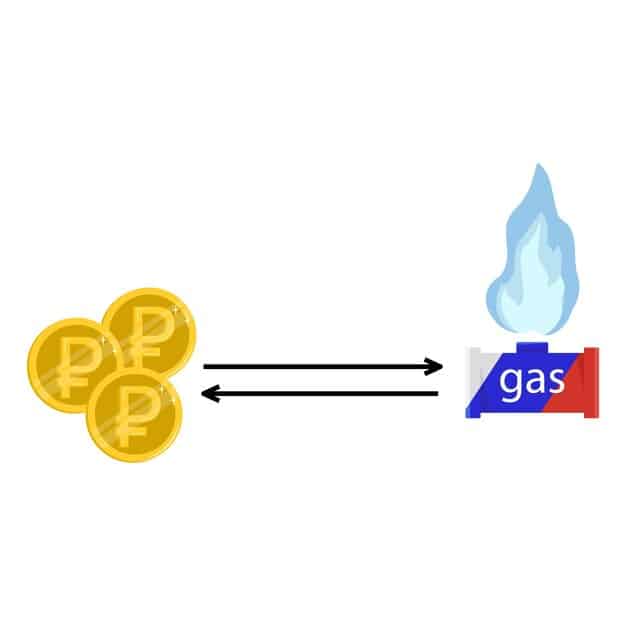DeFi Risk Mitigation: Comparing Insurance Protocols on Solana for US Investors

DeFi risk mitigation on Solana for US investors involves comparing insurance protocols like Nexus Mutual, InsurAce, and Solace, which offer smart contract cover, impermanent loss protection, and overall portfolio security against potential exploits and hacks within the decentralized finance ecosystem.
Navigating the world of Decentralized Finance (DeFi) can be exciting, but it’s crucial to understand and mitigate the risks involved, especially for US investors exploring the Solana blockchain; this article covers DeFi Risk Mitigation: Comparing Insurance Protocols on Solana for US Investors.
Understanding DeFi Risks on Solana
Decentralized Finance (DeFi) offers incredible opportunities, but it’s essential to be aware of the potential pitfalls; especially for US investors new to the Solana ecosystem; understanding where these risks come from might help mitigate accordingly.
Smart Contract Vulnerabilities
Smart contracts are the backbone of DeFi, but they aren’t always perfect; bugs or vulnerabilities in the code can lead to significant losses, as highlighted by several high-profile exploits in the DeFi space; with Solana’s focus on high speed and low costs, smart contract security becomes even more critical.
Impermanent Loss
Impermanent loss is a unique risk for liquidity providers in decentralized exchanges (DEXs); when the price of deposited assets diverges, it can result in a loss compared to simply holding the assets; understanding this mechanism is crucial for anyone participating in liquidity pools on Solana-based DEXs.
Concentrated Liquidity Risk
Concentrated liquidity is a feature on platforms like Orca which allows liquidity providers to specify a price range upon which they are willing to supply liquidity. The challenge comes when the price moves out of range, as the liquidity is no longer participating in trade, and the provider earns no swap fees. Additionally, the position will be 100% in the less valuable asset, exposing the provider to impermanent loss.

- Smart contract audits: Thoroughly vetted and audited smart contracts are less prone to exploits.
- Diversification: Spreading investments across multiple protocols can reduce overall risk.
- Insurance protocols: DeFi insurance can provide a safety net against unforeseen events, by mitigating risk.
In summary, Solana’s DeFi ecosystem presents unique opportunities alongside inherent risks; smart contract vulnerabilities and impermanent loss are two significant concerns that US investors should be aware of; by understanding these risks, and using the correct mitigation strategies, DeFi Risk Mitigation can be achieved by US investors on Solana.
Introduction to DeFi Insurance Protocols
DeFi insurance protocols aim to provide a safety net for users participating in decentralized finance, by offering coverage against various risks; these protocols are designed to reimburse users in the event of hacks, exploits, or other unforeseen events.
How DeFi Insurance Works
DeFi insurance protocols operate similarly to traditional insurance, but with a decentralized twist; users pay premiums to purchase coverage, and in the event of a covered incident, they can file a claim to receive compensation; the claims process is typically governed by a decentralized autonomous organization (DAO), ensuring transparency and fairness.
Benefits of Using Insurance Protocols
Using DeFi insurance protocols can provide peace of mind and protect your investments in the volatile DeFi space, especially for US investors on Solana; it can help mitigate losses from smart contract failures, exchange exploits, or even stablecoin de-pegging events.

- Risk Mitigation: Insurance protocols reduce the financial impact of unforeseen events.
- Peace of Mind: Knowing your investments are protected can help you to participate confidently in DeFi.
- Enhanced Security: Insurance encourages protocols to maintain high-security standards.
In conclusion, DeFi insurance protocols offer a valuable tool for mitigating risks in the decentralized finance space; by understanding how these protocols work and their benefits; US investors on Solana can make more informed decisions and protect their investments.
Comparing Nexus Mutual
Nexus Mutual is one of the pioneering decentralized insurance protocols, offering coverage against smart contract failures and other risks, using a unique model based on pooled capital and community governance.
Key Features of Nexus Mutual
Nexus Mutual operates as a decentralized autonomous organization (DAO), where members collectively assess risks and approve claims; it offers cover against smart contract exploits, oracle failures, and other technical risks; additionally, Nexus Mutual uses a bonding curve to determine the price of its native token, NXM, which is used for governance and staking.
Coverage Options
Nexus Mutual offers a variety of coverage options tailored to specific DeFi protocols and risks; users can purchase cover for individual smart contracts or entire platforms; the cost of cover depends on factors such as the perceived risk of the protocol, the amount of capital at stake, and the duration of the coverage period.
Claims Process
In conclusion, Nexus Mutual provides a robust and decentralized approach to DeFi insurance, appealing to US investors seeking comprehensive coverage and community-driven governance
Comparing InsurAce
InsurAce is another prominent DeFi insurance protocol that offers a wide range of coverage options, including smart contract cover, IDO insurance, and more; it distinguishes itself through its multi-chain support and diverse product offerings.
Key Features of InsurAce
InsurAce operates on multiple blockchain networks, including Ethereum, Binance Smart Chain, and Solana; this multi-chain approach allows it to cater to a broader audience and offer coverage for a wider range of DeFi projects; InsurAce also offers innovative products such as IDO insurance, which protects investors against rug pulls and other scams during initial DEX offerings.
Coverage Options
InsurAce provides a variety of coverage options to suit different needs and risk profiles; users can purchase cover for smart contract risks, custody risks, and stablecoin de-pegging events; the cost of cover depends on factors such as the risk assessment of the protocol, the amount of capital at stake, and the chosen coverage period.
Claims Process
The claims process with InsurAce involves submitting a claim through the platform, providing evidence of the loss, and undergoing a review by the InsurAce team and community; claims are assessed based on predefined criteria, and payouts are typically made in stablecoins or other cryptocurrencies; promptness and clarity are essential for a smooth claims process.
- Multi-chain Support: InsurAce operates on multiple blockchain networks.
- Diverse Products: Offers innovative products such as IDO insurance.
- Customizable Coverage: Provides flexible coverage options.
In summary, InsurAce offers a versatile and accessible DeFi insurance solution and with its multi-chain support and wide range of coverage options, is a solid choice for US investors seeking broad protection in the DeFi space.
Comparing Solace
Solace is a more recent entrant into the DeFi insurance market, offering a unique approach to risk assessment and coverage; it focuses on providing comprehensive protection for entire portfolios, rather than individual smart contracts.
Key Features of Solace
Solace uses a novel risk assessment model based on on-chain data and machine learning algorithms; this allows it to provide dynamic and accurate risk assessments for DeFi protocols, which in turn informs the pricing of its coverage offerings; with its data-driven approach and focus on portfolio-level protection, Solace stands out as an innovative solution in the DeFi insurance landscape.
Coverage Options
Solace offers portfolio-based coverage, meaning that users can protect their entire DeFi portfolio with a single policy, which is useful for simplicity and convenience; Solace’s coverage extends to a wide range of risks, including smart contract exploits, oracle failures, and economic vulnerabilities; additionally, users can customize their coverage parameters, such as the coverage amount and deductible, to tailor the policy to their specific needs.
Claims Process
The claims process with Solace involves submitting a claim through the platform, providing supporting evidence, and undergoing a review by the Solace team and community; claims are assessed based on the terms of the policy and the circumstances of the incident; payouts are typically made in stablecoins or other cryptocurrencies; transparency and efficiency are key considerations in Solace’s claims process.
- Portfolio-Based Coverage: Protect your entire DeFi portfolio with a single policy.
- Data-Driven Risk Assessment: Uses on-chain data and machine learning for accurate risk assessments.
- Customizable Coverage Parameters: Tailor the policy to your specific needs.
In conclusion, Solace offers a unique and data-driven approach to DeFi insurance, making it an attractive option for US investors seeking comprehensive protection for their entire DeFi portfolio; US investors are able to mitigate risks by having more data-based decision making as opposed to being reliant on speculation only.
Choosing the Right Protocol for US Investors
When selecting a DeFi insurance protocol, US investors should consider several factors to ensure they choose the option that best fits their needs and risk tolerance; these factors include the coverage options, pricing, claims process, and the reputation of the protocol.
Assessing Your Risk Tolerance
Before purchasing DeFi insurance, it’s essential to assess your risk tolerance and determine the level of coverage you need; consider the size of your DeFi portfolio, the types of protocols you’re using, and your overall investment goals; a well-informed decision will determine if you are better off with Solace as opposed to another insurance type.
Comparing Coverage and Pricing
Compare the coverage options and pricing of different DeFi insurance protocols to find the best value for your money; consider the specific risks you want to protect against and the coverage limits offered by each protocol; balancing comprehensiveness with affordability is key.
Claims Process and Reputation
Evaluate the claims process of each insurance protocol and consider its reputation within the DeFi community; look for protocols with transparent and efficient claims processes, as well as positive reviews from other users; a protocol’s responsiveness and fairness in handling claims can significantly impact your experience.
All things considered, choosing the right DeFi insurance protocol requires careful consideration of your risk tolerance, coverage needs, pricing, and the reputation of the protocol; by weighing these factors, US investors can make an informed decision and protect their investments in the dynamic world of decentralized finance.
| Key Point | Brief Description |
|---|---|
| 🛡️ Smart Contract Risks | Mitigate vulnerabilities with DeFi insurance protocols like Nexus Mutual and InsurAce. |
| 💡 Impermanent Loss | Protect against losses in liquidity pools using insurance options. |
| 💼 Portfolio Coverage | Solace offers comprehensive protection for your entire DeFi portfolio. |
| ⚖️ Claims Process | Evaluate transparency and efficiency when selecting a protocol. |
FAQ
▼
DeFi insurance is a type of coverage that protects users against financial losses in decentralized finance due to smart contract failures, hacks, or other unforeseen events.
▼
Nexus Mutual operates as a DAO where members collectively assess risks and approve claims. It offers cover against smart contract exploits and oracle failures.
▼
InsurAce provides a variety of coverage options, including smart contract risks, custody risks, and stablecoin de-pegging events. It also offers IDO insurance against rug pulls.
▼
Solace utilizes a data-driven risk assessment model and offers portfolio-based coverage, meaning you can protect your entire DeFi portfolio with a single policy.
▼
US investors should consider their risk tolerance, coverage needs, pricing, and the reputation of the protocol before selecting a DeFi insurance option. They should research all the options to make a well educated purchase.
Conclusion
In conclusion, mitigating DeFi risks on Solana is crucial for US investors, and understanding the nuances of insurance protocols like Nexus Mutual, InsurAce, and Solace is paramount; by carefully assessing individual needs and risk tolerance, investors can choose a protocol that offers peace of mind and robust protection in the dynamic world of decentralized finance.





